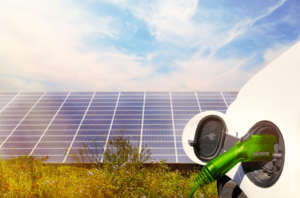Discover the crucial role of fire safety in solar panel installations. Learn how EFPC addresses the potential risks and highlights safe practices for sustainable energy use.

Solar panels have become an increasingly popular choice for generating renewable energy. They offer numerous benefits, such as reducing dependence on fossil fuels and lowering energy costs. However, in the pursuit of a greener future, we should not lose sight of safety issues. Ensuring fire safety is crucial when installing and using solar panels. In this article, we will discuss some important considerations to ensure that solar panels are safe and fireproof.
Quality of installation
A properly installed solar panel system starts with the quality of the installation. It is essential to choose an experienced and certified installer who is familiar with fire safety regulations. A professional installer will carefully check the wiring, connections and fastening of the solar panels to minimise possible risks of short circuits or overheating.
Location and ventilation
The location and ventilation of the system should be considered when installing solar panels. Solar panels should have sufficient space around them to allow for good air circulation. Overheating can lead to fire hazards. In addition, solar panels should not be installed in places where flammable materials are in the immediate vicinity, such as wooden structures. Lightning conductor installation(s) should also be taken into account in the installation plan of solar panels.
While solar panels are paving the way to green energy, fire safety issues should not be overlooked. Careful installation and periodic maintenance are essential to combine sustainability with safety.
Electrical safety
A correctly designed electrical system is vital for solar panel fire safety. This includes the use of high-quality cabling, correct sizing of fuses and installation of earth leakage switches. Regular inspection and maintenance of the electrical system are also important to detect and address potential problems in time.
Fireproof materials
When installing solar panels, attention should be paid to using fire-resistant materials. This includes cabling, fixing materials and the inverter. Choosing products that comply with relevant fire safety standards can significantly reduce the risk of fire.
Fire safety measures
In addition to preventive measures, it is also important to take appropriate fire safety measures. For example, for large roofs and/or high roofs, this can mean the installation of a dry fire-fighting system that allows a fire to be quickly controlled and extinguished, thus limiting damage.
